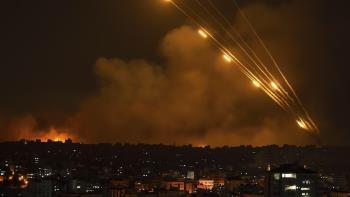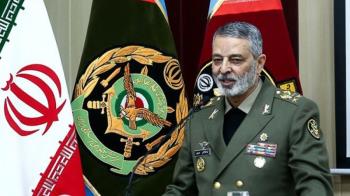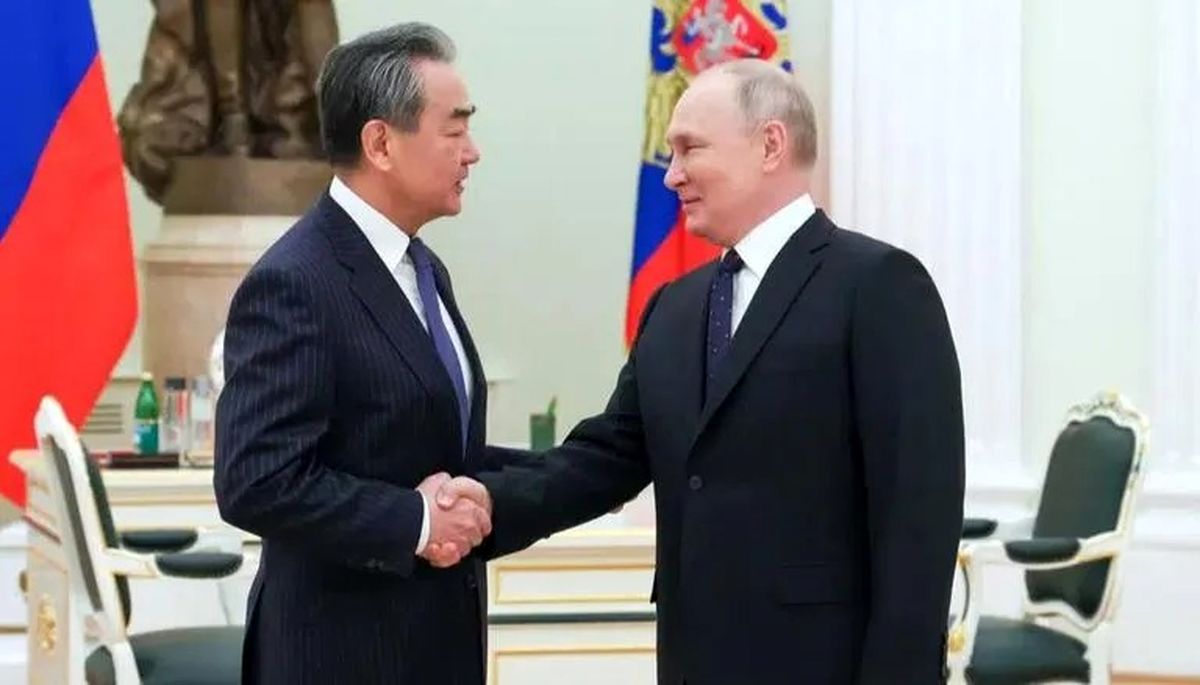Alwaght- Ukraine war is entering its second year as there is no clear prospects for peace amid Western warmongering. While the US and its allies have mobilized their resources to ground Russia in Ukraine by providing arms to Kiev, China, which finds the war not in favor of the world, is trying to work out a solution.
To this end,, China presented a 12-point peace plan to end the war in Ukraine. The initiative stresses on beginning of peace talks between Moscow and Kiev, striking a ceasefire deal, lifting Western sanctions on Russia, adopting measures to ensure the security of nuclear facilities, opening humanitarian routes for the evacuation of civilians, and taking steps to ensure the export of Ukraine grain, reduce strategic risks, and support stability of industrial and supply chains, and post-war reconstruction. China’s peace plan has also highlighted the Beijing’s positions on “effectively guaranteeing the sovereignty, independence and territorial integrity” of all countries and called for the end to the “Cold War mentality”.
China’s peace roadmap comes as this country has always emphasized its neutrality in the war over the past year, but at the same time said that its relations with Russia will continue unlimited.
Chinese initiative pushes for resumption of peace talks, something the Russians repeatedly said ready to do unconditionally. This is seen by experts as a ground for ending this global crisis. With the war coming highly costly to the world economy, its continuation can bring challenges even bigger than those of the Covid-19 outbreak, something posing a threat to a China seeking greater economic strength.
Re-opening the routes for the export of grain from Ukraine is an important issue on which Beijing emphasizes, as grain shortages in the world over the past year brought the countries face to face with food insecurity and rallying prices, and according to a UN report, the continuation of this situation threatens the lives of hundreds of millions of people across the world, with poor Asian and African countries taking the biggest effect.
The demand for safety guarantees to nuclear facilities comes while in recent months, concerns about the occurrence of nuclear radiation from the Zaporizhzhia power plant in Ukraine, which is the largest nuclear power plant in Europe, have increased, and there have been several rounds of clashes between Russian and Ukrainian forces around this power plant. The international community has warned against damages to the compound. This area is now under the control of the Russians and they have said that they provide its security and safely and have repeatedly accused Ukraine of attacks on the power plant.
Ukraine welcomes initiative, US rejects it
China proposed its peace plan as a neutral side, but there are differences among the Westerners in their reaction to the plan. Ukrainian President Volodymyr Zelensky welcomed China’s show of willingness to play a diplomatic role in the conflict, saying: “The fact that China started talking about Ukraine is not a bad thing. But the question is what comes after these words. The question is about the details of this plan and where these proposals will lead.”
Though he had earlier expressed his readiness to resume peace talks with Putin, Zelensky set some conditions that make peace path bumpy.
Kiev believes that Russia should withdraw from the occupied territories, which account for about 15 percent of Ukraine’s territory, before they can sit at the negotiating table, a request that the Russians strongly oppose and have said they will not hand over these territories. Ukraine seems to have to face the fact. Therefore, the insistence of the Ukrainians on their demands, while even the West has no hope of recapturing the areas annexed by the Russians, make the peace process out of reach.
Although Ukraine is a party to the war and Kiev leaders must decide on the fate of their country, what we see in practice is that the final decision-maker is the US, which has no will to end this destructive war due to its political ambitions.
“(Russian President Vladimir) Putin’s applauding it, so how could it be any good?” Biden told ABC News on the one-year anniversary of the war.
“I’ve seen nothing in the plan that would indicate that there is something that would be beneficial to anyone other than Russia, if the Chinese plan were followed,” he continued.
The immediate and clear opposition to China’s plan makes sense given Washington’s intentions and goals behind perpetuation of the war in Ukraine. The US knows very well that stopping the war and accepting a peace deal in the current situation plays into Russia’s hands, and this issue will strengthen Russia on the borders of NATO, something posing a serious threat to the US interests.
The White House leaders believe that Ukraine war provides the best opportunity to weaken Moscow by a war of attrition and eliminate it as a rival. After all, the Russians are seeking to redefine the international order to make the world multipolar. Washington does not tolerate such an outlook and is determined to beat Moscow at any expense. But the Americans are not considering another side of this confrontation which is the Russian threat to use nuclear weapons for self-defense if the West insists on defeating Moscow.
The US attempt to send advanced weapons to Ukraine and opposition to China’s plan shows that this country has no will to end the war in Ukraine, and now war orders are issued from Washington’s command. Russian officials have also pointed to this reality, arguing that Kiev leaders are simply puppets and everything depends on Washington.
Chinese initiative a threat to American hegemony
An important point about the US opposition to the Chinese plan is that the American officials believe that if Beijing peace plan ends the war, it would serve an image boost for Washington’s rival on the world stage and China would brag about being a peace champion settling the biggest global post-Cold War crisis, something representing an enormous blow to the American image as it labels China the largest threat in its national security strategy and finds its win a loss for its long-followed policy to contain the emerging Asian heavyweight.
In line with this strategy, the US deployed forces to Chinese borders to weaken Beijing from within by interfering in Taiwan and Hong Kong affairs and distract China from its global ambitions. The Americans know that if the Chinese enjoy internal security, they can better advance their competition with the US in all fields, and this runs counter to Washington’s goals. The fact that China has emphasized respecting the territorial integrity of countries in its Ukraine peace plan is because it pushes to cut off the American presence in Taiwan and save its territorial integrity.
To justify its opposition to China’s plan, the US has made claims about sending Chinese weapons to Russia in recent days. American and European officials claim that China is planning to send drones to Russia while Beijing officials have criticized weapons supplies to Ukraine and described it as fueling the fire. The Chinese have argued that the party sending weapons to the Ukraine war is the Americans, not them. While the US accuses China of sending weapons to the Russians, it does not have documents. With these claims, the Americans are trying to insinuate to the world that China is an ally of the Russians and is an accomplice to the killing of Ukrainians in order to tarnish its image in the world.
Chinese goals behind mediation
China follows its own goals in Ukraine war. Although involvement of powers in Ukraine serves a good opportunity to Beijing to scale up its economic and military power, China at the same time takes damages due to the enormity of the conflict. China used to export many of its goods from the Russian borders to the European markets, but in the past year, the borders have been closed. And since the transportation via alternative routes like the Caspian Sea and the Persian Gulf is costly for China, Beijing seeks an end to the war and resumption of its exports to Europe by reopening the Russian borders. After the war in Ukraine, China further focused on its major ‘One Belt and One Road’ project and as long as there is war, its implementation would be difficult.
The massive Western sanctions on Moscow that have led to a grave economic crisis in Europe can leave destructive consequences in the long run. As the world’s largest oil importer, China will suffer, too. This is the key driver behind its war mediation.
On the other hand, with the suspension of the New Start nuclear arms control and reduction treaty by Russia, concerns have risen about the start of a new Cold War and an arms race. If the situation slides out of control, a third world war is likely, and involvement of nuclear arms in the war can throw the world back to prehistory. That is another reason China is pushing for de-escalation between the West and Russia to discontinue the crisis. It also knows that the current tensions disrupt important decisions at the UN.
A war of attrition in the long run would be highly costly to Russia that on the one hand is facing off NATO alone and on the other hand grappling with sanctions. Beijing leaders are against a weakened Russia and find it a victory to the US. Some observers suggest that if China feels Moscow is losing the confrontation with the West, it would review its neutrality and supply Russia with arms.
Given such conditions, an end to the Ukraine war is unimaginable in 2023, as Western arms to Kiev compound the crisis aspects. China’s peace initiative is not going to make a difference due to the American opposition. After all, the Americans have been preparing for this war from years ago to impair Russia and do not want to lose this opportunity with a peace plan proposed by their top foe China.



























